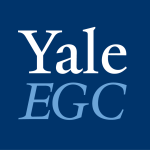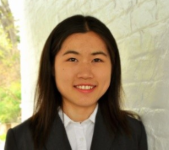The Sylff Fellowships at Yale University
The Annual Ryoichi Sasakawa Young Leaders Fellowship Fund (Sylff) fellowship awards recognize outstanding economics PhD students in development economics and trade at Yale.

The global Ryoichi Sasakawa Young Leaders Fellowship Fund (Sylff) seeks to “identify and nurture leaders who will initiate action to transcend differences in nationality, language, ethnicity, religion, and political systems and who have the integrity, determination, and expertise to bring about positive social change in global society and the local community.” Since its inception in 1987, Sylff has evolved into a global fellowship program administered at 69 world-leading institutions of higher learning in 44 countries. To date, about 16,000 graduate students in the humanities and social sciences have received fellowships, and these Sylff fellows have gone on to become leaders in a variety of fields following graduation.
In keeping with the Sylff Association’s vision, the Sylff Program at EGC provides a number of fellowship awards each year to outstanding economics PhD students in development economics and trade at Yale. These awards are in the form of a scholarship to cover tuition and fees, a living stipend, and a $4000 additional stipend.
The EGC also has a separate Sylff research fund for grants of up to $40,000 for PhD students in Economics at Yale for projects focused on international development and trade. To learn more about Sylff research grants, visit: EGC Research Grants for PhD Students.
The Global SYLFF Association is a collaborative initiative of The Nippon Foundation, the endowment donor, and the Tokyo Foundation for Policy Research as program administrator. For more information, visit Sylff.org.
Fellowship Award Process
Sylff fellowship awards are allocated by the Sylff Faculty Selection Committee at EGC, which convenes each year to determine the recipients of these fellowships for the current academic year. The Sylff Fellows will also receive priority in the allocation of office space for graduate students at EGC. There are no applications for these awards, as fellows will be independently nominated by EGC faculty affiliates and then selected by the committee from among the current eligible PhD students, with consideration of current grade point average.
The current Sylff Faculty Selection Committee at EGC consists of:
- Amit Khandelwal
- Mushfiq Mobarak
- Rohini Pande
- Nicholas Ryan
Current Sylff Fellows
The following Yale PhD students have been selected as Sylff fellows in the 2024-25 academic year in recognition of their excellence in the areas of development economics and trade.
Miho Hong (2023-24, 2024-25)

Miho Hong is a sixth year PhD student studying theoretical and empirical market design. In a project joint with Nicolò Generoso, she studies the produce market in South Korea, where a few licensed platforms auction off farmers’ crops in wholesale markets. To benefit market participants from economies of scale created by network effects, the government restricts platform entry. However, the welfare effects of such a policy are unclear since it endows the platforms with market power to extract surplus from farmers, which depresses supply. In addition, herding in metropolitan markets may hurt consumers in non-urban areas. Miho and her coauthor aim to estimate the welfare effects of restricting entry and the spatial distribution of surplus by building a structural model and bringing it to data.
Nicolas Jimenez (2024-25)

Nicolas is a fourth-year PhD student working on projects related to firm competition in public procurement markets in East Africa. In one project funded by a Sylff research grant, he is currently studying policies that categorize firms and restrict participation in public procurement auctions for infrastructure projects in Rwanda. The policies screen out smaller and less experienced firms from auctions for large and complex projects, aiming to reduce delays and abandonment during project execution. Restricting participation may soften competition, which in turn may increase firms’ bids and therefore project costs. The categorization policy may also allow the government to learn about firms’ quality while at the same time incentivizing upgrading. Nicolas aims to evaluate the tradeoffs imposed by these policies by building a model of construction firm competition in infrastructure auctions built with administrative data and information collected through firm surveys.
Lorenzo Kaaks (2024-25)

Lorenzo is a fourth-year PhD student studying international trade's impact on economic growth in both developed and developing countries. His ongoing project examines how globalization can accelerate growth in developing countries by shifting production to more complex, technologically advanced industries. Despite Ricardian theory suggesting specialization in less complex sectors like agriculture, Lorenzo's research, which tracks trade liberalization episodes over 30 years, shows that developing countries' exports have significantly increased in complex industries. These findings suggest substantial pro-growth effects of trade in low-income countries. Lorenzo is now developing a structural model to quantify these dynamic gains from trade. Additionally, he explores the formation of long-term buyer-supplier relationships between firms and their importance for product innovation, quality upgrading, and knowledge diffusion.
Cheolhwan Kim (2024-25)

Cheolhwan Kim is a fifth-year PhD student specializing in environmental and spatial economics, with a focus on environmental policies. His research explores the three primary sources of air pollution—industrial, power generation, and transportation emissions. In one project, he investigates how local environmental policies influence the geographic distribution of emissions and output. His findings reveal within-firm electrification and leakage to power plants as well as within-firm and between-firm leakage. These findings shed light on international disputes surrounding emissions controls. Further, his work highlights the potential of industrial electrification, paired with clean power generation, as a pathway to sustainable growth.
In another project with fellow Yale PhD student Seung-Yong Yoo, Cheolhwan analyzes the effects of central and local electric vehicle policies on the spatial distribution of transportation emissions and networks. They find that electric vehicle users highly value charging time. Their research underscores the critical role of fast chargers, in addition to affordable electric vehicles and accessible chargers, in promoting electric vehicle purchase and usage and fostering clean transportation networks.
Shoki Kusaka (2024-25)

Shoki Kusaka is a fourth-year PhD student specializing in international trade, spatial economics, and industrial organization. His current research explores the dynamics of exporter entry and exit, with a particular focus on how export-related frictions influence long-term market structures. In another ongoing project, he investigates labor market power in developing countries, examining how trade liberalization and labor market policies impact wage markdowns, particularly for low-wage production workers, while also considering the spatial distribution of labor and economic activity.
Jared Stolove (2024-25)

Jared Stolove is a third-year PhD student specializing in environmental and urban economics in developing countries. His research focuses on the economic factors behind the significant inequality in air pollution exposure across space, time, and socioeconomic groups in urban areas. While previous studies highlight high levels of air pollution and its health impacts, little is known about how individuals experience pollution due to its hyper-local nature. Jared uses recent advancements in air quality measurement and novel data collection methods to explore how factors like socioeconomic status, time use, location choice, and defensive investments shape individual exposure to air pollution.
In another project, joint with Islamul Haque and Mushfiq Mobarak, he studies climate change adaptation in coastal Bangladesh, where rising sea levels have led to acute shortages of water for drinking and agriculture.
Pamela Torola (2024-25)

Pamela Torola, a fourth-year PhD student and NSF Graduate Research Fellow, focuses on development and spatial economics. Her research examines economic development, agriculture, and labor markets in developing countries, emphasizing structural change and climate adaptation. Pam studies how households and agricultural systems respond to economic and environmental changes, highlighting the roles of institutions, policies, and decision-making.
Collaborating with Lindsey Uniat, Prof. Michael Peters, and Prof. Fabrizio Zilibotti, Pam investigates the decline in female labor force participation (FLFP) in India amid urbanization and growth. Their project develops a household labor supply model to explain the urban-rural FLFP gap, noting decreased participation in urban markets due to higher spousal incomes and labor market distortions.
Pam's second project evaluates how Indian farmers have adapted to climate change over five decades, focusing on crop choice as an adaptation mechanism. She combines household and district-level data with a spatial model to explore financial and institutional barriers affecting farmers' responses.
In collaboration with Meet Mehta, Pam also examines the drivers and consequences of declining farm sizes in India, focusing on inheritance practices, rural labor markets, and trends in subsidiary farming and land redistribution.
Sylff Alumni on Campus
Jingyi Cui (2022-23)

Jingyi Cui is a fifth year PhD student examining remote services trade, where workers provide online services such as data analytics to foreign firms. The ability to export services without the physical movement of persons or goods produces exciting opportunities, especially for workers in developing countries. At the same time, traditional trade frictions such as information problems still exist when trade occurs online. These frictions can curtail the growth of remote services trade.
In one project, Jingyi studies how firms search for international workers to complete service tasks on an online matching platform. Search frictions can make firms reluctant to hire foreign workers and can differentially affect workers depending on their backgrounds. She examines how a particular platform feature can ease these frictions and believes that lessons from this platform have broad applications in the services trade. Additionally, using data from a private company that helps firms with legal and payroll challenges in hiring international workers, Jingyi and fellow Yale PhD student Samuel Solomon analyze hiring patterns in this international labor market, which they hope can help shape policies on global remote work.
Tianyu Fan (2023-24)

Tianyu Fan is a fifth year PhD student studying the distributional consequences of economic development, trade, and growth. In one project, Tianyu explores the impact of differential inflation rates on the welfare of different groups of agents in the context of incomplete price data. Specifically, he investigates how non-homothetic preferences and differential consumption patterns among different income groups can complicate the measurement of inflation and welfare inequality. He addresses the difficulty of measuring inflation for services, which account for a significant portion of modern economies and are particularly challenging to deflate due to improvements in quality and variety.
In another ongoing project, Tianyu is studying the dynamics of inequality and economic growth. Innovation and creative destruction increase the welfare of households while also shaping the distribution of income. On the other hand, income distribution matters for the market and incentives for innovation on different goods. Tianyu studies the joint dynamic of inequality and economic growth and its welfare consequences for people in the different positions of the income ladder.
Roberto Lee (2023-24)

Roberto Lee is a fifth year PhD student studying spatial economics and environmental economics. His research focuses on the interplay between land use and local economic development. In one project, Roberto studies the economic effects of a large decrease in deforestation rates that occurred in the Brazilian Amazon driven by command and control policies. As these policies mainly hinder the expansion of pasture land, the agricultural sector is particularly affected by them. Nevertheless, locals may respond to these changes by switching sectors or migrating out of the region. Then, to quantify the economic effects of hindering deforestation, Roberto uses a dynamic spatial model of land use, where agents are allowed to choose in which sector to work and where to migrate. The model is estimated using various sources of remote sensing data on land use and deforestation.
Jack Liang (2022-23)

Jack Liang is a sixth year PhD and Job Market Candidate studying macroeconomics and trade, with a focus on firm growth and dynamics and spatial policies. He is working on a project studying how management and organizational capital can mediate the spread of productivity across a firm's plants. Jack uses confidential US Census microdata to document that firms with better measured management are more able to add plants and spread these plants further in space. Using quantitative spatial models to highlight the implications of the accumulation of this form of organizational capital on the firm's decision to establish new plants, he is finding that the firms most eager to grow are those that are least constrained by their current managerial abilities.
Additionally, in a joint project with another Sylff Alum Wei Xiang, Jack is studying how simultaneous labor and product market distortions in the form of markups and markdowns can jointly influence the set of firms operating in a market, as well as local welfare. They find that firm entry in a non-tradable sector (e.g., a local service sector such as restaurants) can have strong pro-competitive effects on both the local product and local labor markets. However, the impact of firm entry in the tradable sector (e.g., manufacturing) will have its product market response dampened by inter-regional trade.
Sabrina Peng (2023-24)

Sabrina Peng is a fourth year PhD student studying international and development economics from the perspective of firms. Her specific interests include learning, international knowledge diffusion, and industrial upgrading. In episodes of opening up to trade, firms in the developing world get exposed to more frontier technologies abroad and, over time, begin to produce in product categories and varieties that had to rely on imports before. How to encourage this catch-up in technical capability is of interest to policy makers. Her work asks how learning of the technical know-how happens on a micro level and what role traded goods play in this process.
Christina M. Qiu (2023-24)

Christina M. Qiu is a fifth year PhD student and an NSF Graduate Research Fellow. Her research focuses on trade and spatial economics. She received a B.A. in Applied Mathematics from Harvard College and an MSc in Global Governance and Diplomacy from Oxford University as a Clarendon Scholar. One of her projects examines the impact of mobile money adoption on village insurance networks in Tanzania. She enfolds spatial correlation of location productivity shocks into a model of labor search. Mobile money adoption facilitates the formation of remote remittance networks, allowing households to smooth income shocks without reliance on village mechanisms. She finds evidence for the crowding out of village insurance consistent with moderately positive selection into mobile money adoption.
Matthew Schwartzman (2023-24)

Matthew Schwartzman is a sixth year PhD and Job Market Candidate examining why micro-enterprises are prevalent within developing economies. Most recently, he has focused on the retail sector. In contrast to the United States, where a large share of sales take place in superstores like Wal-Mart, many retailers in developing countries do not operate out of a store. Instead, they sell goods from vehicles or portable stalls. These small-scale modes of operation offer firms mobility and flexibility but limit their ability to build a customer base. His work asks if certain features of consumer demand make small-scale retail more viable in impoverished countries than in wealthy countries, or if, instead, these small firms represent "subsistence entrepreneurship" in the absence of other opportunities.
J Stallman (2022-23)

J Stallman is a fifth year PhD student intrigued by the intersections between development, political economy, and the environment. She's currently working on projects related to the motivations behind international accords in general and focusing on solar geoengineering. These projects are part of a broader investigation into how foreign actors influence development elsewhere. Her current research draws on game and network theory, employing a variety of data sources ranging from climate simulations to trade flows to machine-learning analyses of the text of fishing treaties.
Yan Yan (2022-23)

Yan Yan is a sixth year PhD studying international trade and environmental economics. Yan examines how free riding makes it impossible to shut down leakage channels in an integrated global economy. Since it is difficult to fully analyze the overall effects of carbon policies, Yan instead focuses on the construction sector which requires steel and cement, the two top emitters, as its inputs. He studies the policy implications, considering various carbon leakage channels and industry dynamics. In another ongoing project, Yan and coauthors are studying the effect of international knowledge diffusion and import competition from trade in the context of the manufacturing sector in China.